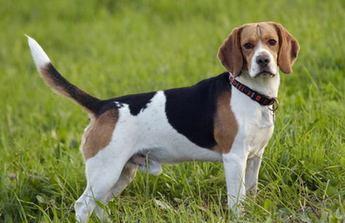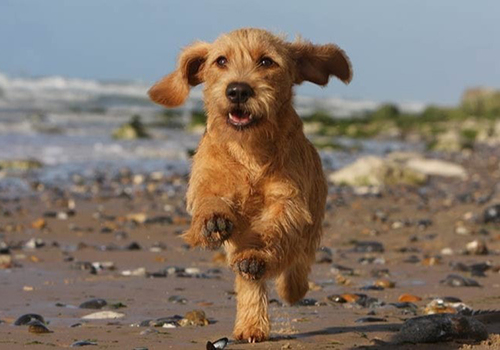The Basset Fauve de Bretagne is almost a “wash-and-wear” dog, with a coarse, wiry coat that repels dirt and resists matting.
Longhaired dogs can be hand-stripped. All require grooming weekly with a fine-toothed comb, followed by a stiff brush. Shedding is seasonal. Nails should be trimmed regularly to avoid overgrowth and splitting. Teeth should be brushed and ears checked regularly.
Basset Fauves are energetic and love to play. Regular walks need to be on a leash as they can run off and follow their nose at a moment’s notice. Areas for exercise and play, such as a backyard, should be fenced for the same reasons.
Exercise can also come in the form of indoor activities, like hide-and-seek, chasing a ball rolled along the floor, or teaching them new tricks.Training for dog sports like agility, obedience and rally can also be a great way to give your dog exercise.
The Basset Fauve de Bretagne is a small-breed dog so it should be fed a dog food diet formulated for dogs of its size.
Small-breed dogs have high energy needs and fast metabolisms so their diet should container higher levels of fat (a highly concentrated source of energy) than a diet for large-breed dogs.
Make sure to choose a diet made from high-quality ingredients including animal proteins.
The Basset Fauve de Bretagne is a fairly healthy and hardy breed that lives up to 14 years on average. Though generally healthy, all dogs are prone to developing certain health problems. The problems most likely to affect the Basset Fauve de Bretagne breed include ear infections, cataracts, kidney failure, corneal ulcers, and reproductive problems.
The Basset Fauve de Bretagne is a smart and trainable breed that excels particularly well in hunting. Because this breed was developed to hunt independently it can be a little willful and independent at times, but consistent and firm training will make him a great family pet.
The Basset Fauve de Bretagne works well with other dogs and generally doesn’t have a problem with destructive behaviors as long as he receives enough exercise. This breed does, however, require plenty of attention and mental stimulation to prevent him from developing problem behaviors.











